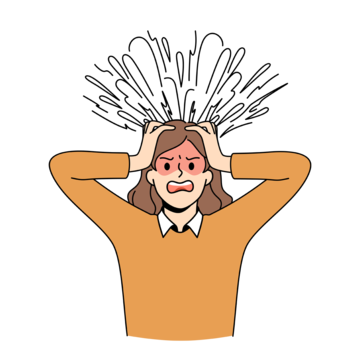Practicing self-care for mental health is essential for maintaining emotional well-being, reducing stress, and improving overall quality of life. Self-care involves intentional actions to nurture your mental, emotional, and physical health, helping you build resilience and cope with life’s challenges. By prioritizing self-care, you can create a healthier, more balanced lifestyle.
Here are 10 practical self-care tips for better mental health.
1. Prioritize Sleep
Getting enough quality sleep is one of the most important aspects of self-care for mental health. Sleep impacts your mood, energy levels, and ability to handle stress.
Tips for Better Sleep:
- Stick to a schedule: Go to bed and wake up at the same time every day.
- Create a bedtime routine: Wind down with relaxing activities like reading or meditation.
- Limit screen time: Avoid screens at least an hour before bed to improve sleep quality.
Adequate sleep helps you feel refreshed and better equipped to manage daily challenges.
2. Stay Physically Active
Exercise is a powerful tool for improving mental health. Physical activity releases endorphins, which boost your mood and reduce stress.
Ways to Stay Active:
- Find activities you enjoy: Try walking, dancing, yoga, or swimming.
- Incorporate movement into your day: Take the stairs, stretch, or go for a short walk during breaks.
- Set realistic goals: Aim for at least 30 minutes of exercise most days of the week.
Regular physical activity enhances both your mental and physical well-being.
3. Practice Mindfulness
Mindfulness is the practice of focusing on the present moment without judgment. It can help reduce anxiety, improve focus, and promote emotional balance.
How to Practice Mindfulness:
- Meditate daily: Spend 5-10 minutes focusing on your breath or a calming mantra.
- Engage your senses: Notice the sights, sounds, and smells around you.
- Practice gratitude: Reflect on things you’re thankful for each day.
Mindfulness helps you stay grounded and better manage stress.
4. Nourish Your Body with Healthy Foods
What you eat can have a significant impact on your mental health. A balanced diet supports brain function and helps regulate mood.
Tips for Healthy Eating:
- Eat a variety of foods: Include fruits, vegetables, whole grains, and lean proteins.
- Stay hydrated: Drink plenty of water throughout the day.
- Limit processed foods: Reduce your intake of sugary snacks and fast food.
Fueling your body with nutritious foods can improve your energy levels and mental clarity.
5. Set Boundaries
Setting boundaries is an essential part of self-care for mental health. Boundaries help you protect your time, energy, and emotional well-being.
How to Set Boundaries:
- Learn to say no: Politely decline requests that overwhelm you or don’t align with your priorities.
- Communicate clearly: Let others know your limits and expectations.
- Prioritize your needs: Make time for activities that recharge you.
Healthy boundaries allow you to focus on what matters most to you.
6. Connect with Others
Social connections are vital for mental health. Spending time with supportive friends and family can reduce feelings of loneliness and improve your mood.
Ways to Stay Connected:
- Schedule regular check-ins: Call or meet up with loved ones.
- Join a group or community: Participate in activities or organizations that interest you.
- Reach out for support: Share your feelings with someone you trust.
Strong relationships provide emotional support and a sense of belonging.
7. Take Breaks and Unplug
Constantly being “on” can lead to stress and burnout. Taking breaks and unplugging from technology is a simple yet effective form of self-care for mental health.
How to Unplug:
- Schedule tech-free time: Set aside time each day to disconnect from devices.
- Spend time in nature: Go for a walk, hike, or simply sit outside.
- Practice relaxation techniques: Try deep breathing, stretching, or listening to calming music.
Unplugging helps you recharge and refocus.
8. Engage in Hobbies
Hobbies are a great way to relax, express yourself, and find joy. Engaging in activities you love is an important part of self-care.
Ideas for Hobbies:
- Creative activities: Try painting, writing, or playing music.
- Physical activities: Explore gardening, hiking, or yoga.
- Learning opportunities: Take a class or learn a new skill.
Hobbies provide a sense of accomplishment and help you unwind.
9. Seek Professional Support When Needed
Sometimes, self-care for mental health involves reaching out for professional help. A therapist or counselor can provide tools and strategies to support your well-being.
When to Seek Help:
- Persistent feelings of sadness or anxiety: If these feelings interfere with daily life.
- Difficulty coping with stress: When stress becomes overwhelming.
- Need for guidance: If you’re unsure how to address mental health challenges.
Professional support can make a significant difference in your mental health journey.
10. Celebrate Your Progress
Recognizing and celebrating your achievements, no matter how small, is an important part of self-care. Acknowledging your progress boosts confidence and motivation.
How to Celebrate:
- Reflect on your accomplishments: Take time to appreciate what you’ve achieved.
- Reward yourself: Treat yourself to something you enjoy.
- Share your success: Celebrate milestones with friends or family.
Celebrating progress helps you stay positive and focused on your goals.
Prioritize Self-Care for Mental Health
Self-care for mental health is not a luxury—it’s a necessity. By incorporating these tips into your daily routine, you can reduce stress, improve your well-being, and build resilience.
If you’re looking for additional support, my private practice in Melrose, MA offers therapy and self-care strategies tailored to your needs. Visit my services page to learn more about how I can help you on your mental health journey.
External Resources for Self-Care:
- National Alliance on Mental Illness (NAMI) – Self-care tips and mental health resources.
- Mental Health America – Self-Care – Tools and strategies for improving mental well-being.
Start prioritizing self-care for mental health today to create a healthier, happier you.

